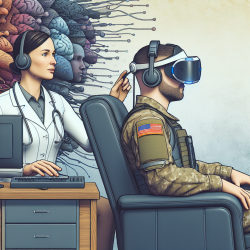The realm of academia, especially within STEM fields, is often characterized by its rigorous pursuit of knowledge and innovation. However, as highlighted by a recent study titled NSF Fellows’ perceptions about incentives, research misconduct, and scientific integrity in STEM academia, there are underlying challenges concerning ethical practices and scientific integrity that need addressing. This study provides valuable insights that can empower educational practitioners to improve their skills and foster a culture of integrity.
The Importance of Ethical Training
The study reveals that while mandatory ethics training is prevalent, over half of the NSF Fellows felt unprepared to tackle real-world ethical dilemmas. This highlights a critical area for improvement for educational practitioners. By integrating comprehensive ethics training into the curriculum, educators can better prepare students for the ethical challenges they may face in their careers. This involves not just theoretical knowledge but practical applications through case studies and real-world scenarios.
Fostering a Culture of Integrity
A significant finding from the research is the perception of academic cheating and misconduct among peers. With 16% of fellows admitting to cheating and 31% aware of peers doing so, it becomes imperative for educators to cultivate an environment where integrity is valued and upheld. Practitioners can implement policies that encourage transparency and accountability, ensuring that students understand the long-term implications of unethical behavior.
Strategies for Practitioners:
- Create Open Dialogues: Encourage discussions around ethics and integrity in classrooms to demystify these concepts and make them relatable.
- Role Models: Highlight positive role models within academia who exemplify ethical behavior.
- Real-World Applications: Use case studies from various fields to illustrate the consequences of misconduct and the importance of maintaining integrity.
The Role of Online Therapy Services
For institutions facing staffing shortages in therapy services, online platforms like TinyEYE offer a viable solution. These platforms can support schools by providing access to licensed therapists who can assist in addressing students' mental health needs, which is essential for fostering an environment conducive to ethical learning and development.
The integration of online therapy services ensures that students receive the necessary support to manage stressors that may otherwise lead to unethical decisions. By addressing mental health proactively, educational practitioners can create a supportive environment where students feel empowered to uphold ethical standards.
The Path Forward
The insights from NSF Fellows underscore the need for a shift in how educational institutions approach ethics training and integrity. By adopting these findings, practitioners can play a pivotal role in shaping future generations of researchers who prioritize ethical conduct over short-term gains.
To read the original research paper, please follow this link.










